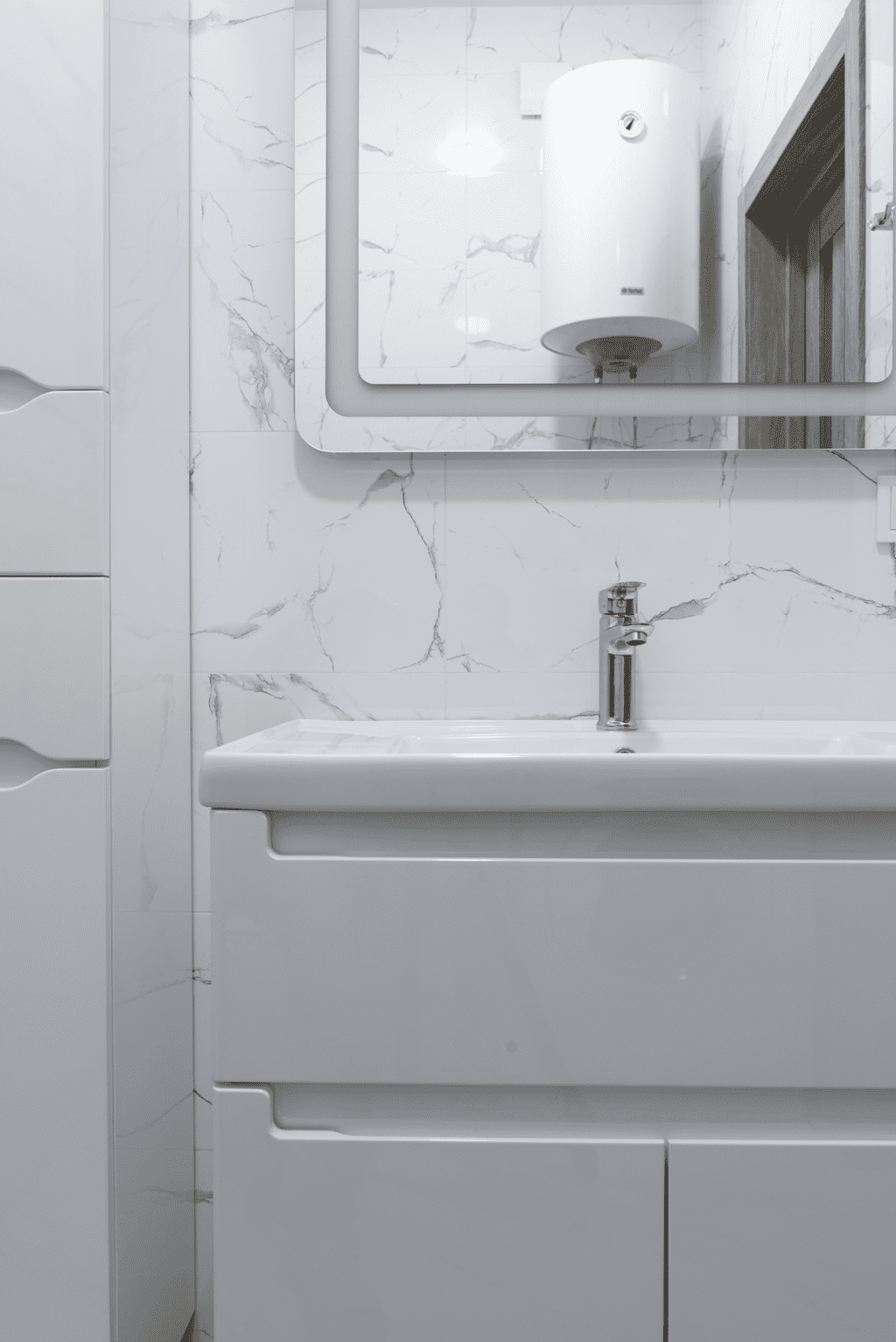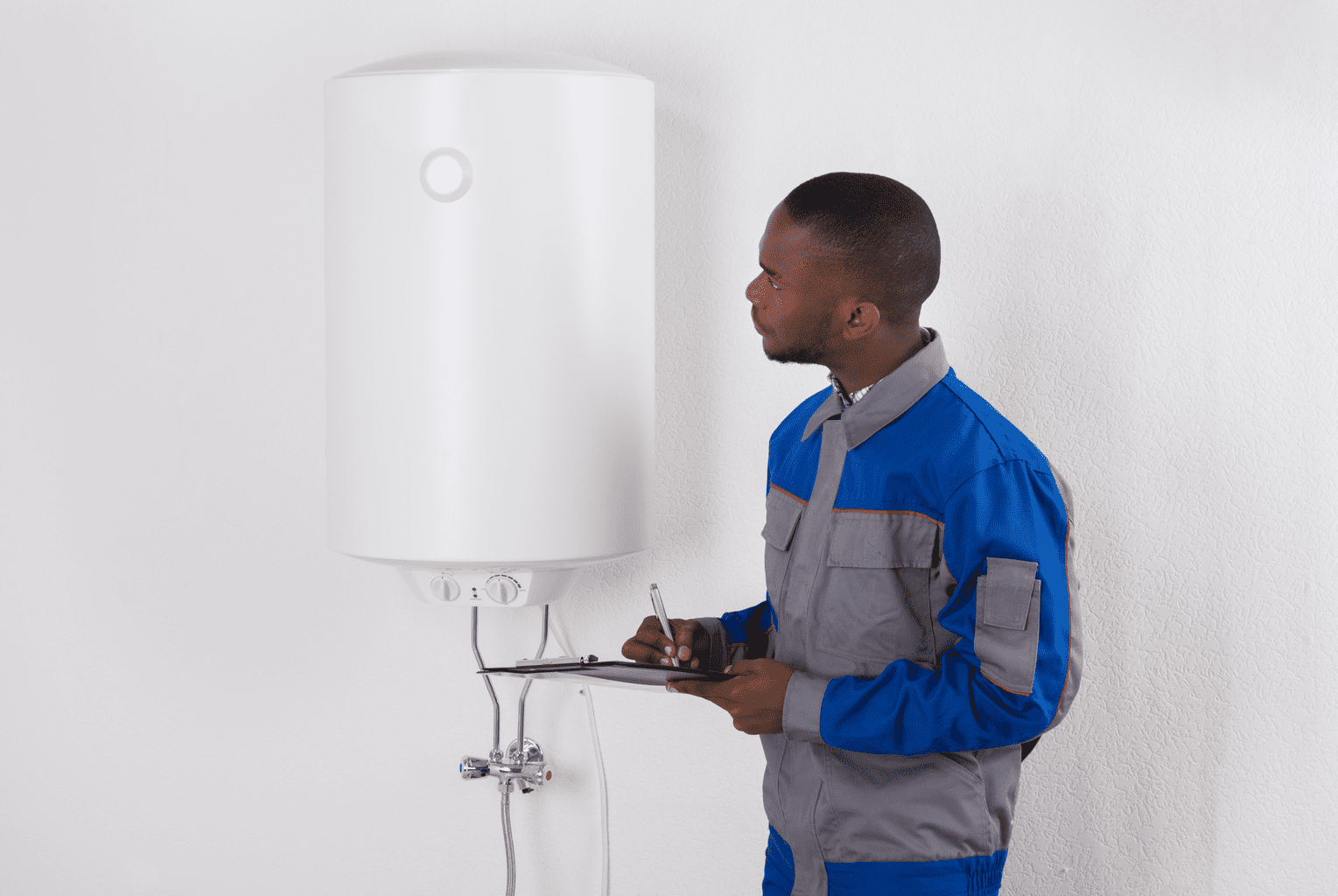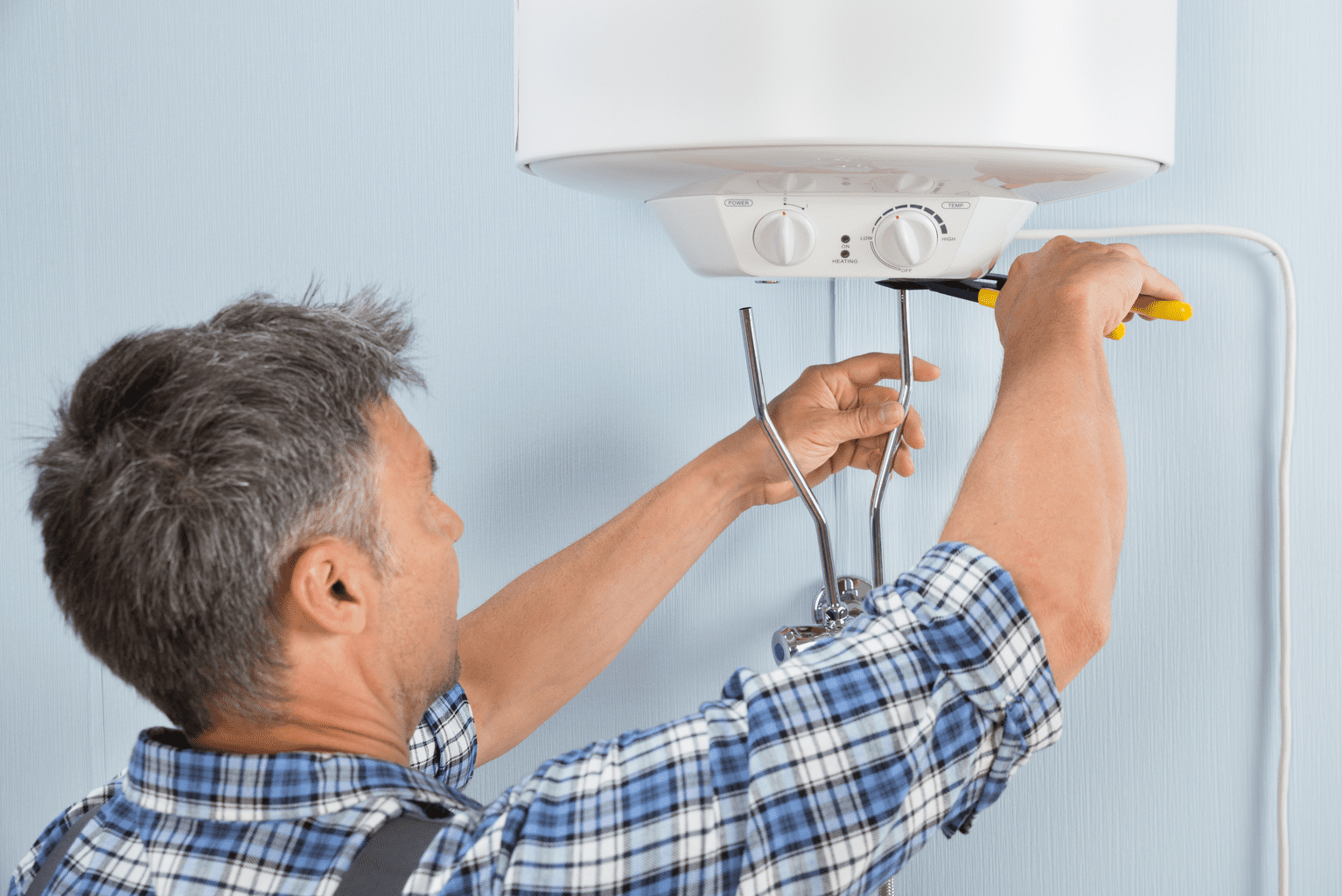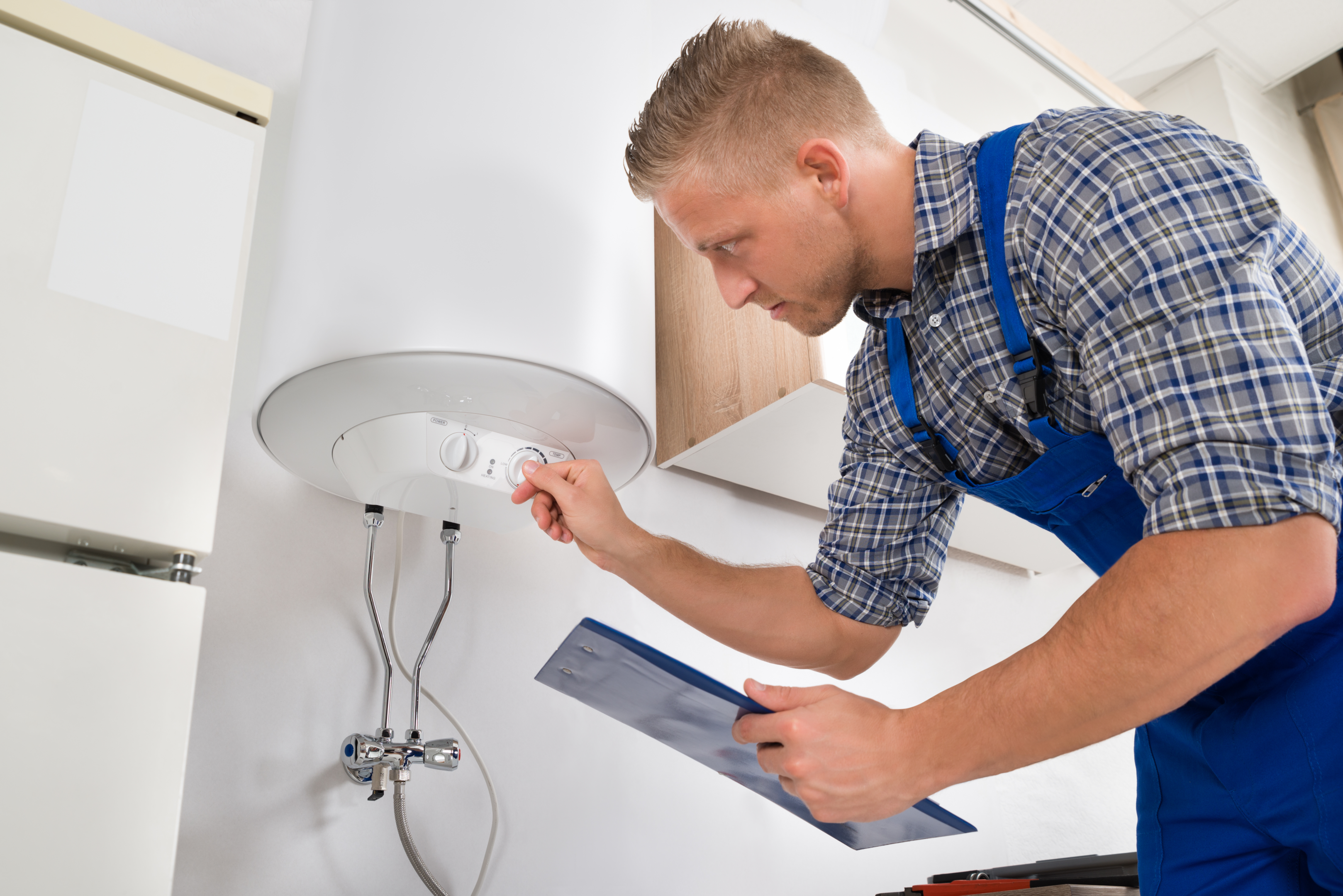The hot water coming from your water heater should be hot enough to suit your needs while simultaneously killing bacteria inside the tank. However, mishaps can frequently happen, and your hot water may not be as hot as it used to be.

If you notice changes in your hot water, and it becomes lukewarm instead of hot, there’s likely an issue with your water heater. Luckily, most of the problems that happen with water heaters typically require an easy fix, and you can quickly resolve them.
Still, you must figure out what’s wrong with your water heater and why it produces lukewarm water.
Keep reading to learn more about why your water is only lukewarm and not as hot as before.
6 Reasons For Why The Water From Your Hot Water Tank Is Lukewarm
There are different reasons to why you have lukewarm water instead of hot water, and we’ll cover more about them below.
Issues With the Thermostat
When it comes to why your water is only lukewarm, the issue might be in your thermostat. Two possible things could cause thermostats to malfunction:
Broken Thermostat – If your thermostat is set at the proper temperature, but the water inside is either lukewarm or cold, it might be broken.
If you have a faulty thermostat that’s not working correctly, there’s nothing you can do on your own. However, you can contact a licensed plumber to fix the issue and replace it if needed.
Incorrectly Set Thermostat- Many people set the thermostat at a low temperature during the summer to conserve energy and save money. However, some of them forget to set it back in place, so your water heater might not have enough hot water.
Still, you can resolve this issue by simply setting the thermostat back in place, increasing the temperature inside the tank.
Build up of Sediment
If you notice that the water from your hot water heater is lukewarm water instead of hot, you might be dealing with sediment build-up. This issue won’t happen if you have a new water heater, but it’s a common issue with older water heaters.
While the water collects inside the hot water heater, waiting to heat up, it’s not uncommon for dirt, debris, and dissolved minerals to collect at the bottom of the tank.
When that happens, and there’s a lot of sediment build-up, the hot water heater won’t be able to heat the water, causing lukewarm water to flow instead of hot water.

Follow these steps to fix an issue with sediment buildup:
Open the drain valve on your hot water heater and check whether there’s sediment buildup. If there’s sediment buildup, the water won’t be clear as supposed to be.
Fill half of the tank with cold water to loosen up the sediment inside, then drain the tank. Repeat this process until you see a clear water supply instead of dirty water.
To prevent future issues, you can install a better filtration system. That way, less sediment will be built up inside your hot water tank.
Broken Dip Tube
The dip tube inside your hot water heater directs cold water to the tank, where the hot water heater heats it. However, your dip tube can get broken and cause your tank to release lukewarm water instead of hot water.
A broken dip tube can’t direct the cold water to the bottom of the tank, where it heats up, so it will remain cold or lukewarm.
If your dip tube is broken, you’ll need to replace it, as it will prevent hot water from creating in your hot water heater. However, when this is the faulty element causing the lack of hot water in your tank, it might be better to replace the whole hot water heater.
That’s because it can be expensive to replace the dip tube, and a new water heater would be a smarter solution. You can prevent the dip tube from breaking by practicing regular maintenance, although it can still break with years.
The Gas Valve Is Broken
Gas water heaters have a gas valve that typically lasts for 10 years. As it breaks with age, once broken, the gas valve can produce weird smells; you’ll be able to smell rotten eggs or garbage. If you notice a change in the water temperature, combined with strange smells, this is likely the issue interrupting your hot water supply.

A broken gas valve is a serious issue you should approach with caution. Reach out to a plumber and your gas company to prevent further damage. You can’t fix a broken valve, so it will need to be replaced when broken.
Tripped breaker
If you have an electric water heater that doesn’t release hot water and lukewarm water that’s not hot enough, the tripped breaker may interrupt the power source, causing the heater to malfunction.
When the tripped breaker interrupts the power source, the water will gradually cool down, causing the water to be lukewarm and then turn cold.
You can quickly fix this problem by flipping the circuit breaker on, which will cause your water tank to heat the water and make it hot again.
Your Water Heater Is Old
If the water coming from hot water heaters is not hot enough, it could be that your water heater tank is old. All heaters and their heating elements have an expiration date, so when something is malfunctioning, it could be the reason for aging.
Old hot water heaters typically need replacement, as the repair costs may be too high and not worth your time.
Failed Immersion Heater
If you have an immersion heater that fails, it will be producing lukewarm water instead of hot water. You shouldn’t try to fix a faulty immersion heater; replace it instead.
However, remember that this shouldn’t be a DIY project as it could be potentially unsafe. Reach out to a professional to do the replacement for you.
Conclusion
If you have malfunctions with your hot water supply and your water is not heated enough, you’ll need to check your heating element. Inspect the water heater to see why the water is not as heated as it should be. As you can see, the issues may vary, so figuring the problem out is essential for resolving it promptly.

